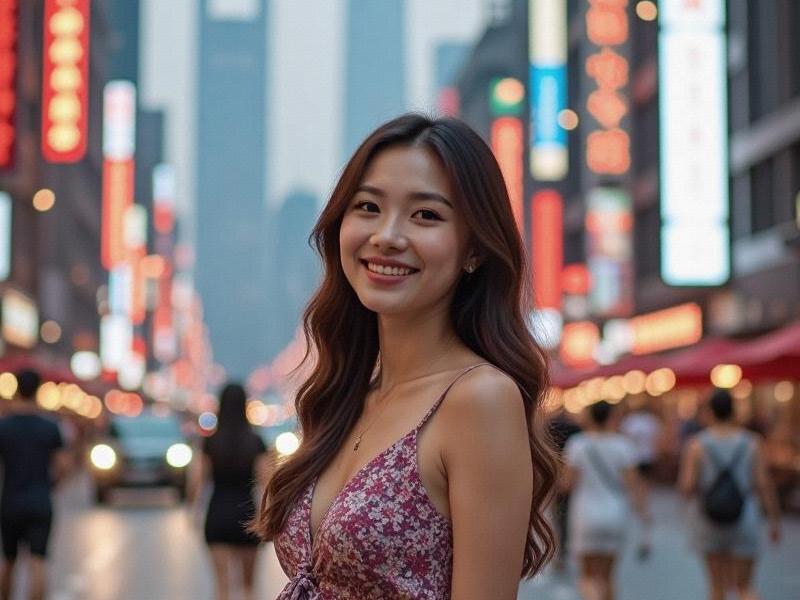
The neon-lit streets of Shanghai have become the runway for China's most fashion-forward women. In this city where 1920s Art Deco buildings stand beside futuristic skyscrapers, Shanghai's female residents have perfected a cultural alchemy - mixing qipao silk with Parisian tailoring, ancient hair ornaments with contemporary streetwear.
What distinguishes the Shanghai beauty isn't merely physical attractiveness (though the city's reputation for lovely complexions and graceful figures persists), but an unmistakable aura of capability. These are women who command boardrooms in tailored suits by day, then transform into visionaries of haute couture by night at Bund cocktail parties.
上海花千坊爱上海 The typical Shanghainese working woman's morning ritual reveals this duality. In apartments overlooking the Huangpu River, skincare routines incorporating both French pharmacy brands and traditional Chinese herbs precede the strategic selection of outfits - perhaps a Vera Wang dress accessorized with jade inherited from her grandmother. The final touch? That particular Shanghai confidence radiating from eyes shaped by both Confucian discipline and global ambition.
This phenomenon has historical roots. As China's first cosmopolitan port, Shanghai women have been synthesizing international influences since the 1930s, when "Modern Girls" shocked society by wearing lipstick and discussing politics. Today's generation builds upon that legacy while smashing glass ceilings - over 38% of Shanghai's tech startups have female founders, the highest rate in Asia.
上海品茶工作室 The fashion industry takes cues from Shanghai's streets. Local designers like Helen Lee incorporate cheongsam elements into contemporary silhouettes, while international brands establish Asia flagships here specifically to dress this discerning demographic. "Shanghai women understand quality," says Vogue China editor Margaret Zhang. "They'll invest in one perfect Max Mara coat rather than ten fast-fashion pieces."
上海龙凤419 Yet beneath the polished surfaces lies serious substance. Shanghai's female literacy rate exceeds 99%, and women comprise 51% of the city's graduate students. Education fuels their economic power - the average disposable income for urban Shanghai women reached ¥82,296 (about $12,000) in 2024, enabling their luxury consumption.
The Shanghai beauty phenomenon ultimately represents China's balancing act between tradition and modernity. These women navigate complex expectations - filial daughter, devoted mother, corporate leader - while redefining femininity on their own terms. Their secret? As finance executive Li Yaling explains while adjusting her Patek Philippe watch before a shareholders meeting: "We don't choose between East and West. We become both."
As Shanghai solidifies its position as Asia's fashion capital and global business hub, its women continue evolving this distinctive identity - one high-heeled step at a time. Their legacy isn't just beauty, but the blueprint for 21st-century Chinese femininity: cultured, ambitious, and utterly unforgettable.
